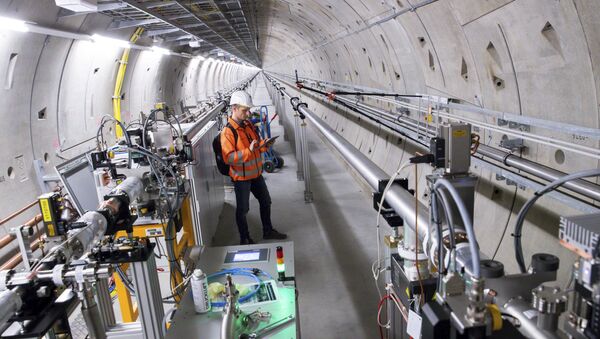MOSCOW (Sputnik) – Russia's financial contribution in major international scientific projects, including the construction of a European x-ray free electron laser (XFEL) and an International Facility for Antiproton and Ion Research (FAIR), amounts to approximately two billion euros ($2.3 billion), Mikhail Kovalchuk, the president of Russia's National Research Center (NRC) "Kurchatov Institute" told Sputnik on Friday.
"In general, total contribution of Russia in the European major scientific projects now amounts to about two billion euros. Only in two projects in Germany — XFEL and accelerator facility for the research with antiprotons and ions FAIR in Darmstadt — we have invested more than half a billion euros," Kovalchuk said.
Russia has for the first time become a leading party in an international project with the construction of the European x-ray free electron laser (XFEL), currently underway in Germany, Mikhail Kovalchuk said.
"To begin with, the device is based on ideas expressed by Soviet, Russian physicists. Thus, we are intellectual donors of the XFEL project, the creators of intellectual property. And the basis of the development of the project was laid by an article of [Russian] Novosibirsk scientists, published as early as in 1980," Kovalchuk said, stressing that hundreds of Russian experts were participating in the project.
The NRC president also pointed out that Russia was a full-fledged financial contributor in the project.
The construction of XFEL started in early 2009, while the start of operations is planned for September of this year. The construction costs amount to 1.22 billion euros ($1.45 billion), according to the official XFEL website. A total of 11 countries are taking part in the project, including Russia, Denmark, France, Germany, Hungary, Italy, Poland, Slovakia, Spain, Sweden, and Switzerland. The United Kingdom is in the process of joining the European XFEL. Using X-rays, scientists will be able to decipher the molecular composition of cells, map the atomic details of viruses as well as take three-dimensional images.



